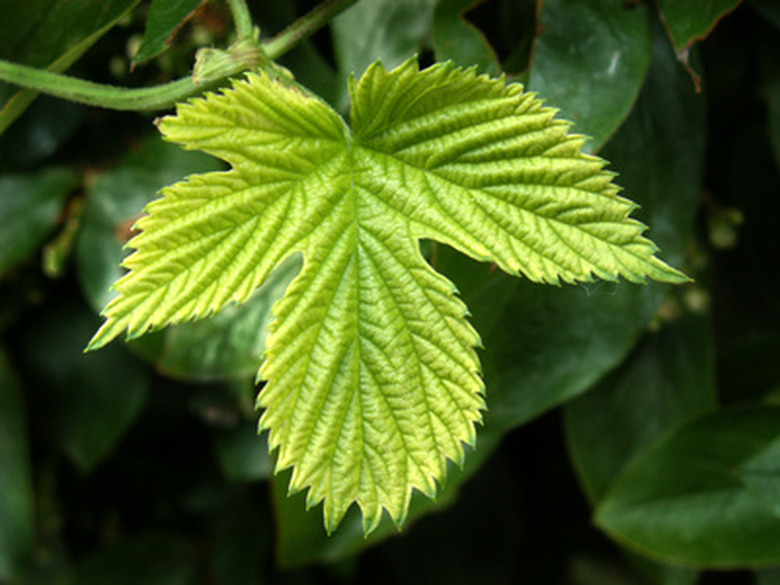Effects Of Light On Seed Germination & Plant Growth
Light is essential to the survival of plants. Within the leaves, the chlorophyll that gives plants their distinctive green color undergoes chemical reactions that convert energy absorbed from the sun into chemical energy. This process, called photosynthesis, is essential to the survival of plants and all life on Earth. Many plants have evolved to respond to light in ways that maximize the energy they can produce using photosynthesis.
Seed Germination
Seeds vary in the amount of light that they need to germinate, with some seeds requiring considerable sunlight and others germinating only in complete darkness. Still other seeds will germinate in light or darkness, and others' preferences depend on the time of year or fertility of the soil. Seed laboratory manager David Batty points out that gardeners should usually assume that plants prefer to grow in the dark–after all, they are typically covered with soil when they begin to grow. The light preference of seeds correlates with the plant's typical growing conditions. For example, researcher Lewis Lipp found that tree seeds needed light to germinate. In the natural habitat, these seeds typically dropped straight to the ground without being covered by soil. In some plants, only parts of the seed are light-sensitive, perhaps assuring that only seeds situated correctly in the soil and that stand a chance of survival will germinate.
- Light is essential to the survival of plants.
- In some plants, only parts of the seed are light-sensitive, perhaps assuring that only seeds situated correctly in the soil and that stand a chance of survival will germinate.
Plant Growth
Scientists and gardeners alike have known for some time that plants need light to grow. However, what was missing was an understanding of how light switches on the physiological processes that allow plants to thrive. Research Pill-Soon Song of the University of Nebraska discovered the missing link as a pigment called phytochrome that detects light wavelengths found in the morning and evening, effectively starting up the plant's biochemical processes for the day and shutting them down at night. These processes prepare plants to utilize photosynthesis, a biochemical process that coverts light from the sun in to chemical energy in the form of sugar. In turn, this also affects flowering. Some plants flower only when the days are short, while others prefer long summer days, and some have no preference at all. According to the University of Oregon Extension, flowering is controlled by the length of darkness each day, and flowering can be stimulated by mimicking the plant's preferred light condition.
- Scientists and gardeners alike have known for some time that plants need light to grow.
- According to the University of Oregon Extension, flowering is controlled by the length of darkness each day, and flowering can be stimulated by mimicking the plant's preferred light condition.
Phototropism
Phototropism refers to the tendency of plants to grow toward light and can often be observed among houseplants pressing their leaves to the window. Phototropism is caused by a hormone called auxin found in the growing tips of plants. Auxin stimulates growth and especially collects in parts of the plant that don't receive much light. The uneven growth on different sides of the leaves bend the leaves toward the light. Similarly, plants that don't receive enough light grow abnormally, appearing thin and stretched as they attempt to grow and find the light needed to thrive. This is especially observable in seedlings and signals the gardener that the plants need more light.
